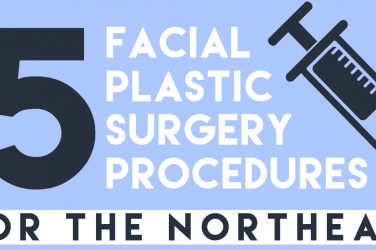Any fitness enthusiast will describe feeling great after a good workout, but they might not be able to explain the science behind this phenomenon. While much attention is given to the many health benefits associated with an active lifestyle, exercise also has many proven psychological benefits. In 2014, research shows that 43.6 million American adults suffered from a mental illness and 20.2 million suffered from a substance use disorder. The overlap between mental health and substance use is substantial, with 39.6% of all substance users also reporting a co-occurring mental illness. With numbers this high, Americans are clearly in need of practical, low-cost ways to improve their mental health. Exercise has proven to be a highly effective strategy to reduce a person’s risk for developing a mental health or substance use disorder, and also to provide symptom relief for those already struggling with one of these disorders. Read on to learn about 8 ways that exercise directly benefits your mental health.
- Exercise boosts energy and productivity
When you exercise, you get your heart rate up and improve your circulation, cueing your brain to release chemicals that help you feel awake and alert. In one small study, researchers found that climbing stairs for 10 minutes provided a greater boost in energy than drinking a half cup of coffee. In addition to feeling more awake, people also describe feeling more productive after exercising. Research supports this claim, providing evidence that time taken out for exercise might pay off in the office as well.
- Exercise gets rid of stress hormones
Everyone deals with stress and anxiety, at least occasionally. High stress, especially when it is chronic, greatly increases a person’s risk for mental illness, substance use, and a range of health problems. During times of stress, people are more likely to turn to unhealthy coping skills like overeating, substance use, or television but these activities tend to be sedentary, and can worsen stress when overused. Exercise provides stress relief that comes without these long-term risks and, it is a more effective form of stress relief. This is because stress hormones like cortisol are actually expended during exercise, instead of just being stored up in your body. Lowering cortisol levels associated with chronic stress helps to protect your brain and body from stress-related illnesses.
- Exercise gets you out of the house
Some people exercise at home, but most venture out to parks, parkways, or gyms to work out. People who work from home, care for young children, or have other circumstances that keep them close to home can become lonely, isolated, or depressed. An exercise routine can provide structure and routine that helps keep you active and social, helping to ward off depression, anxiety, and manage stress levels. You can maximize these positive effects by either finding an exercise buddy to keep you company or by exercising outdoors, where exposure to sun and plant life also provides a psychological boost to your mood.
- Exercise can improve the way you feel about yourself and your body
People who exercise often describe feeling more confident and having higher self-esteem, and this is not just because of weight or body image. Research has shown that people who are physically active tend to feel better about themselves than those who are less active. People who are more physically active are also more likely to have a positive body image which is based less on appearance and more on functionality; in other words, active individuals tend to feel better about their bodies because they feel stronger, more flexible, and more physically capable.
- Exercise rebalances your neurotransmitters
A variety of neurotransmitters are released during physical activity, many of which are known to have direct effects on mood. Endorphins and dopamine are two powerful neurotransmitters which increase feelings of happiness and pleasure, and both are released during exercise. Norepinephrine is another neurotransmitter that is released during exercise, resulting in feelings of increased energy and a greater ability to focus. Because neurochemical imbalances are known to be closely related to mental illnesses like depression, anxiety, and addiction, exercise is a natural way to rebalance and protect against these illnesses.
- Exercise helps regulate your sleep patterns
In recent years, scientists are discovering just how detrimental sleep deprivation is to people’s health and mental health. When sleep deprived, the brain will slow down and malfunction in ways similar to when intoxicated. Because the brain is central to all other bodily functions, the body begins to break down as well, making a person more vulnerable to infection, illness, and even death. The link between sleep deprivation and mental illness is staggering, with insomniacs being 10 times as likely to be clinically depressed and 17 times as likely to have an anxiety disorder. Exercise helps to regulate the body’s natural circadian rhythm, sending signals to the brain to help you stay awake and fall asleep at the right times. Studies have shown that exercise can be helpful in reducing episodes of insomnia in people who chronically struggle with this issue, thereby drastically reducing their risk for common mental health disorders.
- Exercise helps keep your mind and memory sharp
Exercise has many neuroprotective factors, sustaining high levels of cognitive functioning and protecting against damage and decline. People who exercise regularly describe that they are better able to focus and concentrate and have better memory recall. As you age, exercise can also help guard against cognitive decline experienced by many older adults. There is even new research which suggests that exercise is neurogenerative, helping the brain create new cells even into adulthood.
- Exercise improves your physical health
Finally, exercise improves your physical health in several ways, reducing risk for infection, illness, and chronic health issues. While physical and mental health are regarded and treated as separate concerns, they are closely related, each impacting the other. People who are in poorer health are much more likely to develop symptoms of a mental health disorder, and vice versa. For instance, people with depression are more likely to have worse physical health, and are at higher risk for developing serious conditions like heart disease, stroke, multiple sclerosis, type 2 diabetes and certain types of cancer. People who lead active and healthy lifestyles also tend to be people who have more positive outlooks on life, higher levels of self-esteem, and greater overall life satisfaction.
While there are many well-known health benefits of exercise, there are also a wide range of psychological benefits. Exercise improves mood, reduces stress levels, and rebalances brain chemistry in ways that promote mental wellness and guard against mental illness. For those already struggling with a mental illness like depression or anxiety, exercise can provide relief from symptoms. Like most people, you will occasionally have impulses to skip a workout, especially during times of high stress, but these are likely the times when you need the workout the most. Because of the multitude of benefits, making time for exercise should be a top priority for people who value not only their health, but also their happiness.







